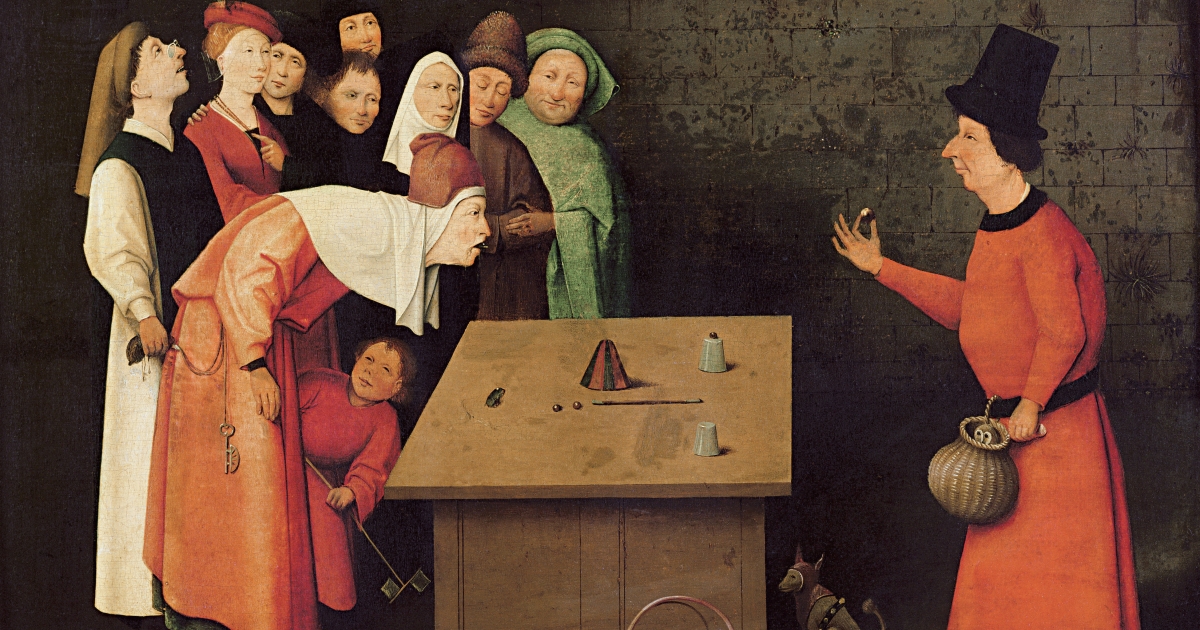Why we practice magic

🌈 Abstract
The article discusses the philosophical and historical perspectives on the relationship between magic, science, and wonder. It explores how prominent Renaissance philosophers viewed magic as a form of cognitive technology that harnesses our sense of wonder, and how magic has been considered a precursor to the development of modern science.
🙋 Q&A
[01] Magic as a Cognitive Technology
1. How does the article describe the connection between magic and wonder?
- Magic connects to wonder in two ways:
- It is the ability to do wondrous things, and hence a kind of power.
- It denotes our amazement at wonders we don't fully understand.
2. What is the difference between surprise and wonder, as described in the article?
- Surprise is the response to an unexpected action, such as a hand swiping a coin away.
- Wonder is the response to a magical action, where an object disappears into thin air, even though we expect it to happen.
3. How does the article describe the role of magic in creating a compelling narrative and empowering the audience?
- Magical performances are a more encompassing art that strive to create beauty and a compelling narrative.
- Witnessing magic can be empowering because the audience gets to share in the idea that we can achieve the impossible.
[02] Magic as a Precursor to Science
1. How did Renaissance philosophers like Giordano Bruno view the relationship between magic and science?
- According to the article, Bruno saw no clear dividing line between early science and magic. He viewed magic as the direct manipulation of natural materials and the observation of their effects.
- Bruno's definition of "natural magic" suggests that phenomena like magnetism and electricity were seen as natural, rather than supernatural, by Renaissance magicians.
2. How did the Vienna Circle philosopher Otto Neurath view the relationship between magic and science?
- Neurath saw magic as the intellectual ancestor of science, rooted in the same commonsensical, practical thinking that motivates modern science.
- He believed that magic, like science, is a human practice aimed at finding causal connections in opaque phenomena and improving people's lives.
3. What is the key insight from the article about the role of wonder in the development of science?
- Wonder prompts us to continue looking for hidden connections and to try to untangle how things are done, rather than being the endpoint of knowledge.
- The article suggests that wonder is a starting point for scientific inquiry, as it drives us to understand the mechanisms behind the wonders we observe.